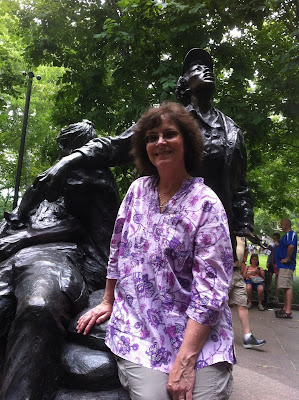Perhaps my 68 years of dealing with this life’s challenges has enabled me to render a helpful opinion on an important question: what is wisdom?
Wisdom is knowing what to keep and what to throw away.
Wisdom is throwing away whatever is not useful, but disposing it in such a way that you do not make a mess for someone else to clean up.
. . . unless they are being rewarded for cleaning it up.
Wisdom is knowing what to accept, what to reject.
. . . and knowing when to wait until you've decided which of those two categories is appropriate in any given situation.
. . . and knowing that sometimes we don’t have time to decide . . .
good luck with that!
Wisdom is using what you have acquired to improve your own life and the life of those with whom you are in community.
Wisdom is listening;
it is also discerning, when the appropriate time comes, to suspend listening and speak.
Wisdom comes in noticing that the world is not a perfect place—there is something wrong with it.
So wisdom then requires discerning the good from evil.
. . . while understanding that there is a purpose for the presence of both in this life.
Wisdom calls us to identify what it wrong, and resist it.
And even to defeat evil when that is necessary.
Wisdom may be conceding that different persons, different people groups, have different definitions for what is good or evil.
And so therefore, in some cases, the grace to forgive wrongness may be more appropriate than judging evil with punishment,
Sometimes even defining what is really good should be re-evaluated.
Wisdom is realizing that the complexity of this world is largely—though not totally—unexplainable, and there may be—there just may be— a God who operates at a level that is beyond our power to comprehend or measure.
. . . a God Who, at the very least, set it all in motion, as the ancient purveyors of wisdom have insisted.
There will always be someone who knows more than you do. Get used to it.
Wisdom is finding people to love.
Wisdom requires responsibility for those we love.
'. . . and sometimes accepting responsibility for those we are unable to properly love.
Without love we are lost forever.
Love requires sacrifice.
Wisdom means being thankful when someone has made sacrifice for you, because you have not done all this on your own.
You were getting help even when you didn’t know it.
PS. It’s not all about you.



















